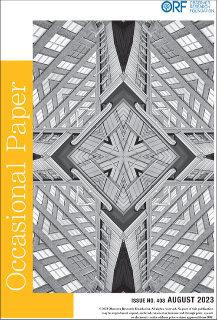Beijing's public reaction to the verdict delivered by the Hague-based Permanent Court of Arbitration has been belligerent and inflexible. The international arbitration case was filed against China by the Philippines on various issues concerning disputes over the islands, rocks and reefs in the South China Sea. China's president, Xi Jinping, has said that the verdict will not invalidate China's historic claims to its maritime territory. Its Foreign Minister, Wang Yi's comment, "this farce is now over.. China opposes and will never accept any claim or action based on those awards", was as acerbic as it could get. China's intemperate and aggressive reaction to the verdict displays the classic symptoms of a country which, despite having risen in the global power hierarchy, remains unsure of how to behave as a responsible big power.
The PCA award is a historic one and will have implications for the future of the South China Sea and other global water bodies. By exercising sovereignty over an island, a country can legitimise control over a vast area of the sea around it and claim rights over natural resources of the sea and the sea bed. Additionally, it permits a country to control passage of ships, including warships, through the sea area claimed as sovereign territory. The geostrategic fallout is quite obvious and significant and will influence claims by countries, other than China, that claim sovereignty over similar islands.
China's posturing and propaganda, including the astonishing claim that most countries of the world supported its claims in the South China Sea, have come a cropper. China issued maps showing that most countries supported China and included India in this list. Such bogus claims have not helped China. Hostile Chinese rhetoric reached a peak before the PCA delivered its verdict and China's actions in the South China Sea became more brazen, including an unwarranted live-fire drill by the Chinese navy. The PCA verdict is, undoubtedly, a huge blow to China's prestige and standing in the international community. China's reaction is full of bluster and threats and is a reaction of a country that has suffered a major loss of face, a fact China takes very seriously. The fate of the Chinese academics who have consistently claimed that China's claims are legitimate is not difficult to visualise in an authoritarian nation like China. Chinese officials have lashed out and brought allegations of bribery against the five judges of the PCA who delivered the verdict. It is, however, quite clear that China has no one but itself to blame, although it has tried hard to shift the blame on to the United States of America and Japan for inciting countries to contest China's maritime claims.
The case in the PCA began three years ago, when the Philippines and China clashed over the ownership of the Scarborough Shoal, a group of islands and reefs in the South China Sea. The Philippines was also fed up with the lack of any diplomatic solution to the issue of sovereignty and the maritime boundary vis á vis the islands and the reefs. Frustrated by China's delaying tactics, the Philippines filed a case before the PCA against China challenging the latter's assertion of its so-called "Nine-Dash Line". This had first appeared on Chinese domestic maps in 1947 and later more widely in 1948. The Nine-Dash Line claims virtually more than 80 percent of the South China Sea as China's territorial waters, ignoring and challenging the maritime claims of Brunei, Indonesia, Malaysia and Vietnam, which are the other littoral countries of the South China Sea. China's claims are so egregious that even a non-expert can see from the map how these claims can never stand the scrutiny of current international maritime law codified in the United Nations Convention on the Law of the Sea.
The PCA first examined China's declaration in 2006 that asserted that China did not accept any provision for dispute settlement under UNCLOS on the issue of "historic bays or titles" that is the basis of the so-called "Nine-Dash Line". Hence, the PCA had to consider, inter alia, whether disputes between China and the Philippines were covered under this exception and also examine China's historic claims in the South China Sea. The PCA determined that it had jurisdiction. It brushed aside China's argument that its claims were all about territorial sovereignty, that China had not agreed to international arbitration or that military issues fell outside the purview of the PCA.
Secondly, the PCA rubbished China's historical claims and found that they went against UNCLOS, currently the bedrock of international maritime law, and a treaty that China has signed and ratified. The verdict rejected China's claims of historic rights and judged them to be incompatible with current international law. The award correctly said that there was no evidence that China had historically exercised exclusive control over the waters and their resources.
Thirdly, the PCA ruled that Chinese claims on islands and rocks which, in some cases were submerged during high tide, fell in the exclusive economic zone of the Philippines, despite China's feverish attempts to reclaim and enlarge some of these islands. China had, therefore, violated the EEZ of the Philippines. Finally, the PCA judged that China was violating UNCLOS and international law by denying the Philippines access to fishing and maritime resources, exacerbating the dispute by building artificial islands and disregarding environmental concerns.
The PCA verdict nullifies China's sweeping maritime claims in an area which is, inarguably, one of the most important shipping routes of the world. The award also found China in breach of six provisions of UNCLOS, having done irreparable damage to the coral reefs because of its reclamation and construction efforts to make some of the islands bigger for airstrips and habitation. Furthermore, the award also ruled that none of the disputed maritime features in the Spratly Islands, including the Scarborough Shoal, Gaven Reef and Fiery Cross Reef, can be said to be islands in their natural condition for the law of the sea to be applicable. These are low-lying reefs that are submerged just below the sea surface during high tide. This means that these reefs do not generate rights to a 200 nautical mile-long EEZ or continental shelf. The verdict also confirmed that Mischief Reef and Second Thomas Shoal, over which China and the Philippines clashed, are within the Philippines's maritime domain and that China has no rights there.
The PCA verdict is a historic legal victory for the Philippines against China. The Philippines won 14 out of the 15 counts on which the panel of judges adjudicated. The verdict will set a precedent for future adjudication of maritime claims and disputes arising thereof. The verdict was not surprising but there were doubts that the PCA might refuse to exercise jurisdiction on some issues in order to avoid a frontal confrontation with China, which had boycotted the proceedings and lobbied aggressively for the case to be dismissed. In the end, the PCA not only exercised jurisdiction, but also judged in favour of the Philippines on the merits of the case. It is bound to have a significant impact on the broader international maritime domain. It also sets a legal precedent for other countries like Indonesia and Vietnam to file cases against China for adjudication of their maritime disputes with the latter.
For India, it must have been a moment of satisfaction in the light of its recent bruising and failure to join the Nuclear Suppliers Group — a move blocked by China through procedural obfuscation. The public statement of the Indian government was carefully crafted, carrying a barely disguised undercurrent of disapproval. The reaction was contained in a statement by the Ministry of External Affairs. It said, "India supports freedom of navigation and over flight, and unimpeded commerce, based on the principles of international law, as reflected notably in the UNCLOS. India believes that States should resolve disputes through peaceful means without threat or use of force and exercise self-restraint in the conduct of activities that could complicate or escalate disputes affecting peace and stability." Also that "Sea lanes of communication passing through the South China Sea are critical for peace, stability, prosperity and development. As a State Party to the UNCLOS, India urges all parties to show utmost respect for the UNCLOS, which establishes the international legal order of the seas and oceans."
Without making it explicit, India's reaction also underlined the fact that India had gracefully accepted a verdict by the same tribunal on demarcating the maritime boundary with Bangladesh, though the award went partially in favour of Bangladesh. India will, therefore, have to factor in China's attitude and future actions on unresolved bilateral disputes.
What must be further galling for China is Russia's refusal to support China's stand. Russia has made it clear that all states must honour the non-use of force to settle disputes and rely on diplomatic settlement based on UNCLOS. Russia also reiterated its stand that the countries concerned should act in accordance with the spirit of the Association of Southeast Asian Nations and the 2002 Declaration on the Conduct of Parties in the South China Sea which China has consistently ignored. Russia has specifically decided to remain neutral. Not surprisingly, Pakistan, China's client State that is a confirmed State sponsor of terrorism, has supported China's position. China's isolation on this issue could not have been starker.
The Filipino people are ecstatic about this legal victory, which, in theory, is binding. The Filipino government under Rodrigo Duterte, the new president, has been more circumspect in its reaction, realising that the verdict may be a legal and moral victory, but its implementation is far from assured. The reaction from the other littoral countries, all having maritime disputes with China, has also been muted. The verdict also lays bare the futile attempts by the 10 nation ASEAN to deal with this issue for over two decades. China has effectively divided the group and ignored all commitments to follow a maritime code of conduct.
The stark reality is that the PCA verdict has no effect on the configuration of power. The Philippines remains a small, weak country, unable to challenge China, which is a large and powerful country that still believes that its position is right and just. China has not given any indication of backing down. The low-key response of the Filipino government underscores this reality and the fact that there is no implementation mechanism for the award. Also the tribunal did not order China to vacate the islands, rocks and reefs that it has occupied. China has declared imperiously that the PCA award is null and void.
China must, however, now worry about its international reputation if it flagrantly refuses to do anything and remains rigid in its approach to the dispute. It cannot aspire to a responsible leadership role if it refuses to negotiate. China's neighbours will be much more wary of China's intentions and the mistrust is bound to deepen. For the Philippines, it opens a window for negotiations. It can leverage the verdict to wrest some concessions from China. It remains to be seen whether China changes course, shows signs of accommodation and whether diplomatic negotiations between the two countries lead to a mutually acceptable demarcation of the maritime boundary.
The verdict opens opportunities for major maritime nations to intensify patrols and exercises to reiterate freedom of navigation. China has already started to land aircraft on an airstrip on one of the islands — Mischief Reef — and may up the ante by declaring an air defence identification zone, which will definitely lead to more confrontation. If China believes, like other great powers, that international tribunals are for weak and small states, then it will compound the problem. Beijing's allegations that the US and Japan have instigated the Philippines to take recourse to the PCA to embarrass China can never be proven and cannot be a basis for China's illegal actions in the South China Sea. Whether China ploughs ahead with more brazen actions and duplicitous manoeuvres remain to be seen. Asian countries must prepare to meet the challenge of a China that is beginning to display symptoms of rogue behaviour.
This commentary originally appeared in The Telegraph.
The views expressed above belong to the author(s). ORF research and analyses now available on Telegram! Click here to access our curated content — blogs, longforms and interviews.




 PREV
PREV


